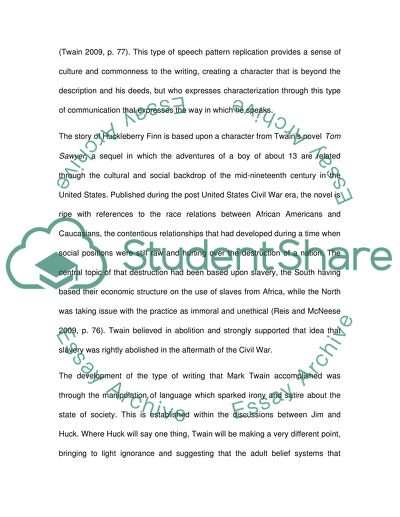Cite this document
(“Huckleberry Finn and the Original Sin of Slavery Essay”, n.d.)
Retrieved from https://studentshare.org/literature/1430691-in-what-ways-does-the-adventures-of-huckleberry
Retrieved from https://studentshare.org/literature/1430691-in-what-ways-does-the-adventures-of-huckleberry
(Huckleberry Finn and the Original Sin of Slavery Essay)
https://studentshare.org/literature/1430691-in-what-ways-does-the-adventures-of-huckleberry.
https://studentshare.org/literature/1430691-in-what-ways-does-the-adventures-of-huckleberry.
“Huckleberry Finn and the Original Sin of Slavery Essay”, n.d. https://studentshare.org/literature/1430691-in-what-ways-does-the-adventures-of-huckleberry.


